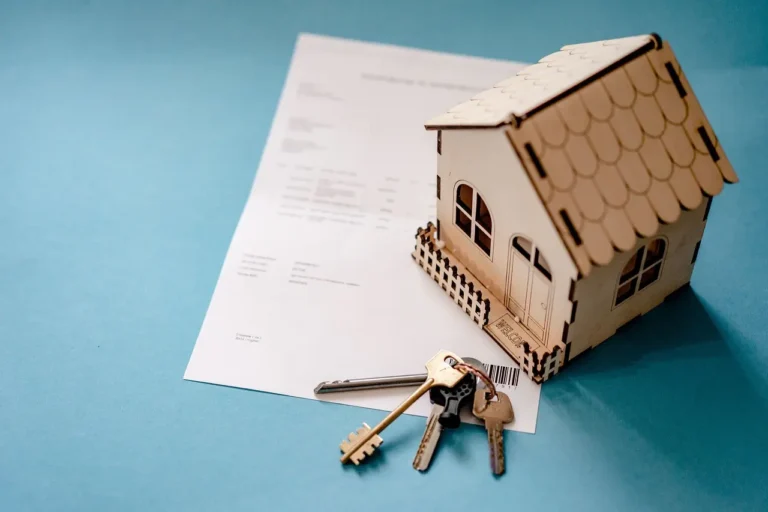It’s important to know what investment properties are in 2025
Table of Contents
what is investment properties
Investment propreties in real estate is a big step. It’s important to know what investment properties are. These are properties bought to make money, like through renting or increasing in value over time. Investing in real estate can be very profitable, offering income, tax breaks, and big returns.
There are many types of investment properties to choose from. You can pick single-family homes, apartments, or even commercial buildings. You can also invest through real estate investment trusts (REITs). Knowing the local real estate market well is key to making smart choices. Properties like rental homes can bring in regular income. Investing in real estate also brings benefits like diversifying your investments and growing your wealth over time.
Key Takeaways
- Investment properties can generate income through rental properties or long-term appreciation in value.
- Real estate investing offers a range of benefits, including rental income, tax deductions, and potential returns on investment.
- Various types of properties are available for investment, including single-family homes, apartments, and commercial properties.
- Understanding the local real estate market is crucial to making informed investment decisions.
- Investment properties, such as rental properties, can provide a steady stream of income and diversification.
- Real estate investing can offer potential long-term growth and returns on investment.
Understanding Investment Properties and Their Benefits
Exploring real estate investment means learning about investment properties. These are properties bought to make money through rent or value increase. Investing in property can be very profitable, providing a steady income and building wealth over time.
Understanding the various types of investment properties is essential. You can choose from homes, apartments, or commercial spaces like offices. Each has its own benefits and challenges, so picking the right one is key.
Definition and Types of Investment Properties
Investment properties fall into several categories:
- Residential properties: single-family homes, apartment buildings, and condominiums
- Commercial properties: office buildings, retail spaces, and warehouses
- Industrial properties: factories, manufacturing facilities, and logistics centers
Key Benefits of Property Investment
Real estate investment has many advantages:
- Rental income: a steady stream of income from renting out the property
- Appreciation: the property’s value can grow over time
- Tax benefits: you can deduct mortgage interest, property taxes, and expenses
Knowing the benefits and types of investment properties helps you make smart choices. This way, you can reach your financial goals through property investment.
| Property Type | Rental Income Potential | Appreciation Potential |
| Residential | High | Moderate |
| Commercial | High | High |
| Industrial | Moderate | Low |

Finding and Evaluating Investment Properties
Finding and evaluating investment properties is key to building a real estate portfolio. You can search online, work with a real estate agent, or attend auctions. It’s important to check each property’s value, condition, location, and renovation potential.
Think about the property’s rental income and growth potential. Also, look at the local market’s demand, rental prices, and economic outlook. A diverse portfolio can reduce risk, so consider different types of properties.
When evaluating properties, consider these factors:
- Location: Is the property in a good area with easy access and amenities?
- Condition: What’s the property’s condition, and are repairs needed?
- Potential for renovation or redevelopment: Can the property be improved to increase its value?
- Rental income potential: How much rental income can it generate, and how will it impact your portfolio?
By carefully evaluating these factors, you can make smart choices when finding and evaluating properties, including buy-to-let properties.
| Property Type | Potential Rental Income | Potential Appreciation |
| Buy-to-let properties | 8-10% per annum | 3-5% per annum |
| Commercial properties | 6-8% per annum | 2-4% per annum |
Financial Aspects of Property Investment
Understanding the financial side of real estate is key to smart investing. You need to look at different financing options and mortgage rules. This helps you pick the right path for your investment and plan your finances well.
Figuring out the return on investment (ROI) is important. Use a mortgage calculator to find out your monthly payments. Then, calculate your ROI based on rental income and property value growth. Also, knowing the tax rules and benefits of real estate investment is crucial. This encompasses deductions for property taxes and mortgage interest.
Building Your Investment Budget
To make a good investment budget, think about ongoing costs, maintenance, and possible empty periods. Here are some things to include in your budget:
- Property management fees
- Insurance premiums
- Property taxes
- Maintenance and repair costs
- Vacancy rates and rental income
By planning your budget well and understanding property investment finances, you can make smart choices. This enables you to maximize your investment returns. Whether you’re experienced or new, staying current with property investment strategies and trends is vital.
| Financing Options | Mortgage Requirements | ROI Calculation |
| Cash purchase | 20% down payment | Rental income and appreciation |
| Mortgage financing | 10% down payment | Monthly mortgage payments and expenses |
| Partner financing | 5% down payment | Shared ownership and profit distribution |
Property Management Strategies
As a real estate investing enthusiast, you know how key effective property management is. It includes finding and screening tenants, managing income, and keeping properties in good shape. A solid property management plan helps you stay hands-off and boost your returns.
Regular property checks are vital to spot issues early. You should also have a plan for handling tenant complaints and disputes. This keeps your tenants happy and reduces vacancies.
Using property management software can make your tasks easier. It helps you track income, expenses, and maintenance requests. This keeps you organized and informed about your investments. Some important strategies include:
- Creating a detailed property management plan
- Thoroughly screening tenants to lower risks
- Regular property inspections to catch problems early
- Using software to manage tasks and track costs
By using these strategies, you can manage your rental properties well. This lets you focus on growing your real estate portfolio and reaching your financial goals.
| Property Management Task | Frequency | Responsibility |
| Property Inspections | Quarterly | Property Manager |
| Tenant Screening | As needed | Property Manager |
| Rental Income Tracking | Monthly | Property Owner |
Risk Management and Market Analysis
Building a real estate portfolio means facing risks. Market changes, empty properties, and damage can affect your earnings. To lessen these risks, you need smart strategies. This includes detailed market analysis and careful planning.
Diversifying your portfolio can help manage risks. You can invest in various properties and locations. For example, you might choose homes, office buildings, or real estate trusts. This way, you spread out your risks.
Common Investment Property Risks
- Market fluctuations: Changes in market conditions can impact property values and rental income.
- Tenant vacancies: Vacant properties can result in lost rental income and increased maintenance costs.
- Property damage: Natural disasters, accidents, or wear and tear can cause significant damage to your investment properties.
To avoid these risks, thorough market analysis is key. You should study local trends, demographics, and economic signs. This helps you make smart choices and build a strong portfolio.
| Investment Properties | Risk Level | Potential Returns |
| Residential Properties | Low-Moderate | 8-12% |
| Commercial Buildings | Moderate-High | 10-15% |
| Real Estate Investment Trusts (REITs) | Low | 6-10% |
Knowing the risks and potential gains of different properties helps you plan. Always do your homework to reduce risks and increase your portfolio’s value.
Conclusion: Building Your Real Estate Investment Portfolio
Starting your real estate investment journey is exciting. Remember, diversification and education are key. A diverse portfolio can reduce risks and increase returns. Look into different properties, like homes and commercial spaces, and choose strategies that fit your goals and risk level.
Keep up with market trends, rules, and new opportunities. Use online courses and publications to learn more. Joining real estate groups can also help you meet experienced investors and learn from them.
Building a strong real estate portfolio is a long-term effort. By following the advice in this article, you can work towards financial success and wealth through property investment.
FAQ
What are investment properties?
Investment properties are real estate bought to make money through rent or value increase. They can be single homes, apartments, or commercial buildings.
What are the key benefits of investing in real estate?
Investing in real estate can lead to long-term wealth and rental income. It also offers tax benefits and the chance to use loans to grow your investment. Real estate can protect against inflation and add diversity to your investments.
How do investment properties generate wealth?
Wealth comes from property value increase, rental income, and tax savings. Selling the property can lead to capital gains. Rental income provides regular cash flow, and tax deductions help reduce costs.
How can I find and evaluate potential investment properties?
Look for properties online, with a real estate agent, or at auctions. Research the local market for prices, yields, and trends. Inspect the property and consider its rental and appreciation potential.
What are the key financial considerations for property investment?
Consider financing, ROI, taxes, and budgeting. Evaluate all costs, including purchase, ownership, and management. Also, think about rental income and value growth.
How can I effectively manage my investment properties?
Manage by finding good tenants, handling income and expenses, and keeping the property in good shape. You might hire a property management company to help.
What are the common risks associated with investment properties?
Risks include market changes, vacancies, damage, and unexpected costs. Do your homework, diversify, and have a risk plan to protect your investment.
Share Your Experience
There are no reviews yet. Be the first one to write one.





